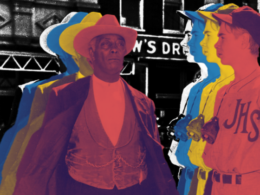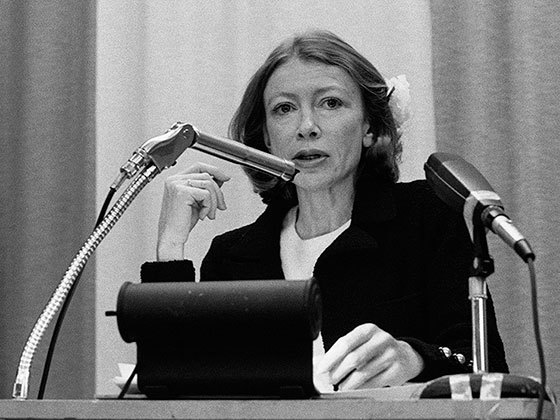The Brooklyn Book Festival on Sunday brought together for an hour of conversation novelist Paul Auster, the 2007 winner of the festival’s Best of Brooklyn or “BoBi” award, and this year’s winner, Pulitzer Prize–winning poet John Ashbery. The BoBi is given each year to “an author whose body of work exemplifies or speaks to the spirit of Brooklyn.”
Following a reading of a few poems from Notes from the Air and of “Cities 1” from his forthcoming translation of Rimbaud’s Illuminations, Ashbery described how he first came to New York City at the suggestion of poet and novelist Kenneth Koch. He found his first job fresh out of Harvard working as a clerk—filing books and answering the phone—at the main branch of the Brooklyn Public Library:
I did so miserably at that job and was so unhappy at it—though loving Brooklyn of course. I had to punch a time clock and almost every day it was red because I was staying out late in New York which I had never lived in before—having a high old time. At the end of the summer most of my time clock was printed in red. Then I got accepted at Columbia Graduate School in literature and I thought they would be very angry when I told them I wasn’t coming back. Instead they broke out in smiles and wished me well. That was the beginning of my Brooklyn experience. The collection was very good. I got a lot of reading done there—another reason they were glad to see me go.
Ashbery noted that his boss at the library had lived at February House, the curious short-lived experiment in artistic communal living in 1940–41 in a brownstone in Brooklyn Heights. As Sherill Tippins recounts in her book February House, the commune was launched by George Davis, just after Harper’s Bazaar fired him as editor. Starting in June 1940 Davis persuaded several of his artist friends to live and work together in the rundown building at 7 Middagh Street. In addition to John Ashbery’s boss at the library, its residents included W. H. Auden, Jane and Paul Bowles, Benjamin Britten, Gypsy Rose Lee (who wrote a mystery, The G-String Murders, with the help of her housemates), Carson McCullers (who began The Member of the Wedding while living there), all three of Thomas Mann’s children, and later, Ellen and Richard Wright.
Ashbery also revealed that the reason many people don’t understand the reference to Coney Island in one of his poems is because it refers to the Human Pool Table ride at Luna Park, which has been torn down.



